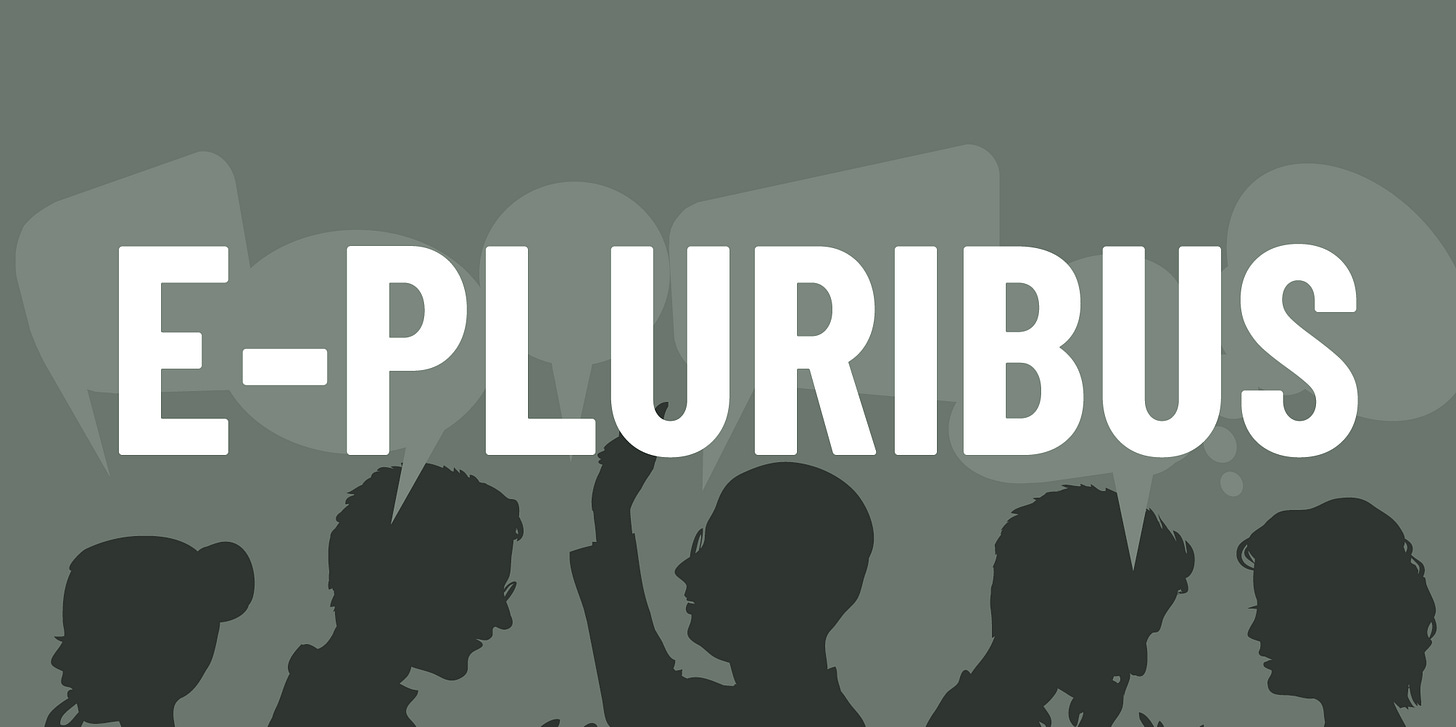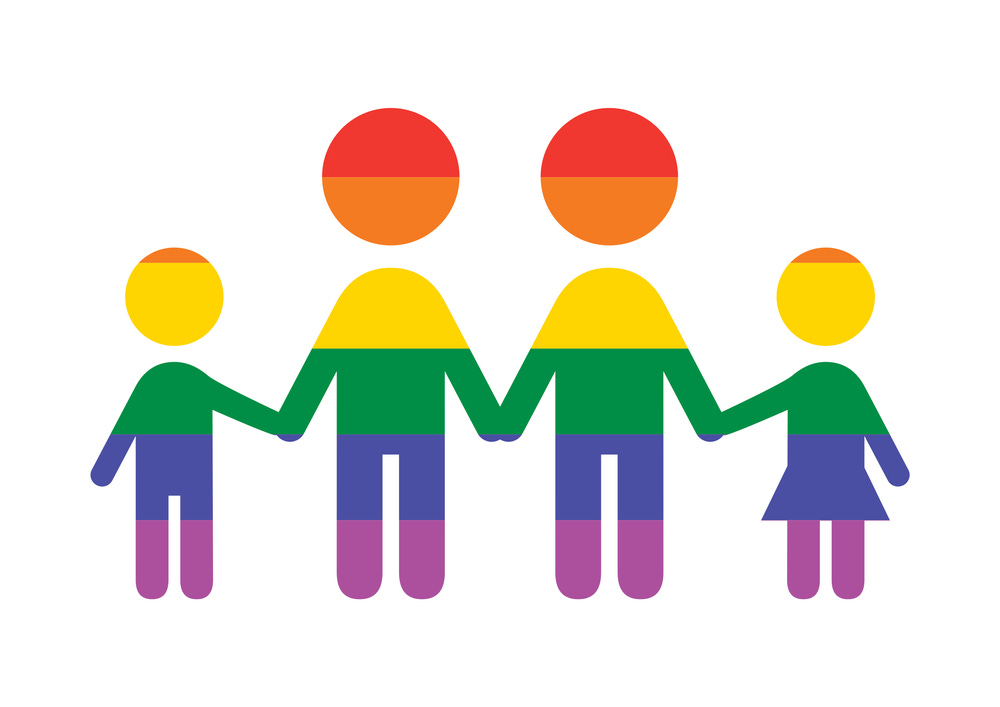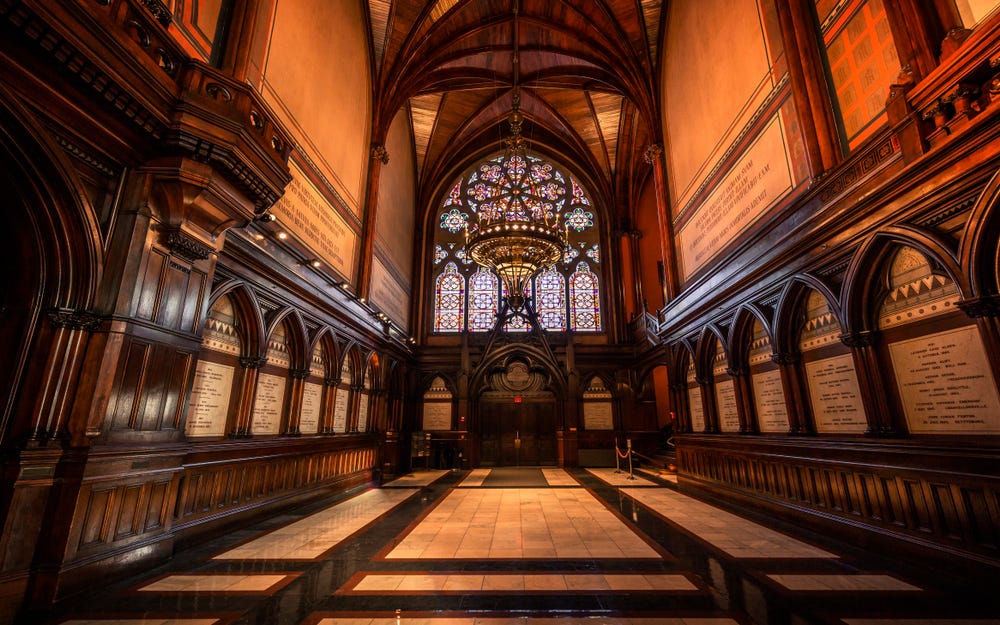E-Pluribus | October 27, 2021
Does adoption need anti-racism, illiberal institutions, and the First Amendment isn't the answer to everything.
A round up of the latest and best writing and musings on the rise of illiberalism in the public discourse:
David K. Ryden: Injecting Anti-Racism Activism Into the Adoption Process Won’t Help Black Children
If adoption is about giving children the best opportunity to grow up in a loving home that will prepare them for life, why would the races of the adoptive parent(s) and/or child be significant? David Ryden at Quillette responds to one agency he believes is misguided in the planned emphasis on race.
Bethany’s move to embrace an explicitly race-conscious approach to child-placement policy betrays a larger philosophical trend related to the rise of such doctrines as Critical Race Theory and intersectionality. While the dominant liberal vision of race in America once emphasized the ideal of color-blindness, the opposite view is now ascendant among progressives: Race—and the assumed existence of racism, in particular—must be centred in all areas of public policy. MEPA (enacted in 1994, and amended in 1996) reflects the former approach, while Bethany’s attack on MEPA reflects the latter.
My own position is that both simplistic positions are untenable. While it is wrong to presumptively trace every problem to the spectre of racism, it is also naïve to imagine that our society is colorblind. As I can personally attest, transracial adoptions really can raise very real challenges, especially for those families that live in predominantly white communities. Bethany should be free, and even encouraged, to offer counseling in regard to those real challenges for adoptive parents who desire it, along with continuing its laudable efforts to enlist more black families into the world of adoption. Likewise, it should be supported in its commitment to recruiting and training a more diverse staff that’s better equipped to help clients navigate our racialized society.
But Bethany’s argument for requiring a race-based assessment and training regime for every family seeking a transracial adoption is a step too far—in part because this desired mandate would necessarily entail the right to reject prospective adoptive parents whom Bethany staff deem insufficiently attuned to an adoptive child’s cultural heritage (as that heritage is understood through the prism of the organization’s newly adopted anti-racism precepts, of course). It is hard to imagine how these new procedures wouldn’t prolong an already lengthy process and discourage many prospective white adoptive families from coming forward in the first place. And while it might be the case that Bethany has made some kind of thorough cost-benefit analysis to assess how black children would be impacted by such a change in approach, there is no evidence of that analysis in the report.
Read it all here.
ICYMI: Sahil Handa: The Illiberalism in Our Institutions
In September, Sahil Handa, a student at Harvard, wrote about the influence that the illiberalism of the modern media and higher education is having on students and on society at large. Handa pinpoints the tendency of these institutions to cater to selective audiences as at least one reason that rather than expand the universe of voices and ideas, they are more limited than ever.
Like the newspapers, elite universities are reorienting themselves to cater to a new and narrow customer base. Schools like Harvard once operated as a patronage system for the white male upper class, most of whom were drawn from a tiny set of New England prep schools. This system was certainly restrictive in terms of who could get inside, but it was not so restrictive in terms of what could be taught or thought. As that patronage system started to disappear, so too did Harvard’s commitment to liberalism and open inquiry.
I’m a student at today’s Harvard, and I’m no stranger to the campus illiberalism so well-documented in the American media. This manifests in many forms: canceling speakers, trigger warnings, firing professors, and widespread self-censorship. I’ve previously argued that the prevalence of support for these actions amongst the student body is exaggerated by media outlets—most of the madness is executed by a small minority on campus—but I do think the illiberalism is getting worse, and that it needs to be properly addressed.
I don’t think the root of the problem is that Harvard undergraduates have made a wholesale conversion to the woke religion. Rather, that a vocal minority has done so—and the college caters to that minority, working terribly hard to avoid offending those who belong to it. This isn’t stupid, and it isn’t weak-willed. But it is deeply problematic, and I see two main causes for it:
Firstly, the old patronage system is mostly gone. Entrance to Harvard is open to anyone in the world, and finding your way through the door is taken as a sign that you are deserving of being listened to and catered to. Since most of the students who get in come from liberal, upper-middle-class families, that is the culture and politics to which the college caters.
Second, most students simply have no incentive to honestly express their opinions, especially if they aren’t aligned with the vocal minority. Harvard freshmen arrive at the most prestigious university in the world and are reluctant to do anything that could threaten their newfound level of social status. Campus debate is dominated by the most privileged students, who have spent years climbing at elite prep schools, learning the vocabulary of microaggression, trigger warnings, and intersectionality—and they bring that language to seminars, club meetings, and town halls. Everyone else just tries to keep their head down and get by without feeling like an impostor. There's no social reward for standing up to the woke minority, so the woke minority are the only students that the college administration is forced to appease.
Read the whole thing.
Andrew C. McCarthy: The Wrong Way to Fight Progressive Indoctrination in Public Schools
There is a growing discontent among parents of public school children with the content of the education to which their children are subject. While Andrew McCarthy at National Review sympathizes with their concerns, he says one avenue of pushback, the First Amendment, just won’t cut it.
Professor Hamburger is right to highlight this project’s offensiveness to the parents of schoolchildren as among its worst features. That said, parental dissent, which is widespread but not unanimous, is just one reason why the project should be resisted. And Hamburger strains mightily not only to portray this dissent as the dispositive objection to progressive curricula, but to portray such curricula as a violation of the constitutional right to free speech.
[…]
Essentially, he posits that the First Amendment gives one party to a protected communication a veto over the other. By this logic, if parents wanted their children to be taught that two plus two equals five, teachers would be expected to comply. Ironically, moreover, Hamburger’s suggestion that public schools are compelling parents to “make their children a captive audience for government indoctrination,” or at least pressuring them to do so, is belied by the very legal authority that he offers in support of his specious First Amendment claim.
[…]
Constitutional conservatives have too often fallen into the trap of believing the courts will save us from the progressive onslaught — even when constitutional counterclaims were strong, as for example were the First Amendment free-speech objections to campaign-finance legislation and the commerce-clause objections to Obamacare. The judiciary is not going to rescue parents from the Left’s abuse of scholastic instruction through means that ought to be anathema to constitutional conservatives regardless: a federal judicial diktat based on an unsupportable reading of free-speech principles.
Read it all.
Around Twitter
Via Colin Wright, a quote on “anti-racism” from John McWhorter’s new book:
Matt Taibbi with an important distinction about cancel culture:
Finally, Jane Coaston and others react to language in a Texas education bill:











